2021 Overview
Even for the most optimistic, any hopes that 2021 and the first half of 2022 would constitute a decisive upward inflection from recent and old trends should, by now, unfortunately have been put to rest. The past year has been generally more of the same, or worse, as pre-existing fissures and excesses have continued to be exposed and often exacerbated: unequal access to vaccines, ever-growing income and wealth disparities, gender-based violence, political polarization, and conflicts on all continents –all within the context of climate change. The war in Ukraine is creating a major humanitarian crisis and sending geopolitical and economic shock waves affecting access to affordable food and energy for millions of households across the globe, including in highly dependent and fragile developing regions already experiencing political violence and tensions.
We have tried to respond to these challenges and opportunities through our work, motivated by the conviction that putting data, technology and AI in the right hands towards the right ends could contribute to “changing the world” for the better. We concluded several data-driven assessments of the impacts of the pandemic on economies, societies, and livelihoods in a dozen Sub-Saharan African countries; produced Liberia’s first Country Gender Equality Profile; contributed to UNESCO’s flagship report “World Trends in Freedom of Expression and Media Development”; supported local groups willing to fight gender-based violence in Latin America with better evidence; helped international organizations evaluate and foster their digital maturity; assessed and strengthened the capacities of several national statistical offices to use non-traditional data; among many other projects.
2022 - 2023 Outlook
Recent events have compounded existing global challenges while socio-political instability and uncertainty have spread to new geographic areas. In a world that often seems like it is spinning out of control, it is tempting to feel discouraged. At DPA, we choose instead to co-develop and deploy data-driven and technology-enabled solutions to aid those most affected by instability, conflict, poverty, violence, distress and inequitable access to opportunities and resources.
The most significant change to our work is the shift from broad ‘thematic areas’ to a more formalized structure of 6 ‘Programs’, each with specific, replicable and scalable products and services, to focus and grow our expertise and resources in a more targeted and strategic manner. These Programs reflect and respond to salient needs and trends faced by our partners:
1. Just Digital Transformations
2. AI and Statistics for the SDGs
3. Resilient Livelihoods and Ecosystems
4. Data Feminism
5. Geographies of Inequalities
6. Technology and Democracy
The report features examples of ongoing and future projects and provides a snapshot of the portfolio of work that we aim to develop in 2022 and 2023 to leverage and democratize data and technology for a more equitable and sustainable world.
Highlights from the Report
Support Our Work
Your personal financial contribution to our organization has power: every dollar, euro, peso, etc. directly funds our work and can enable us to pursue original, groundbreaking projects in topics and regions underserved by traditional funding. Your donation is tax-deductible in the USA and France.
Institutional donations from philanthropic foundations, donor organizations, or private companies are also welcome. To learn more about funding modalities, please contact fundraising@datapopalliance.org.

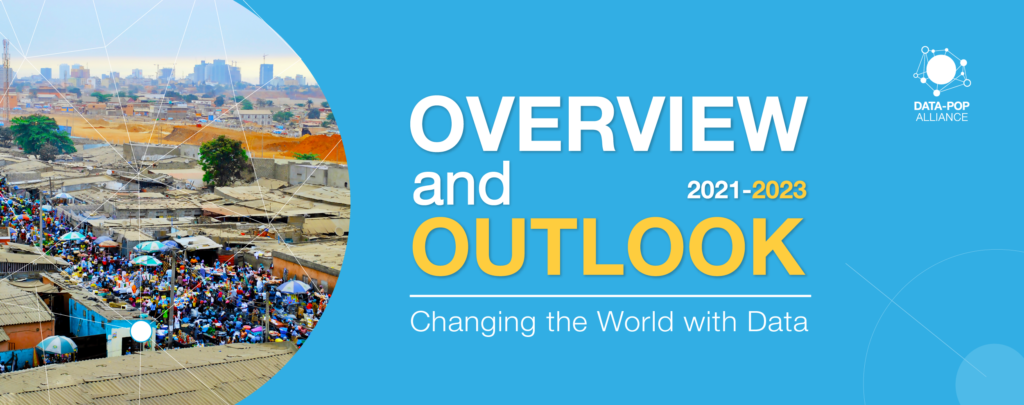
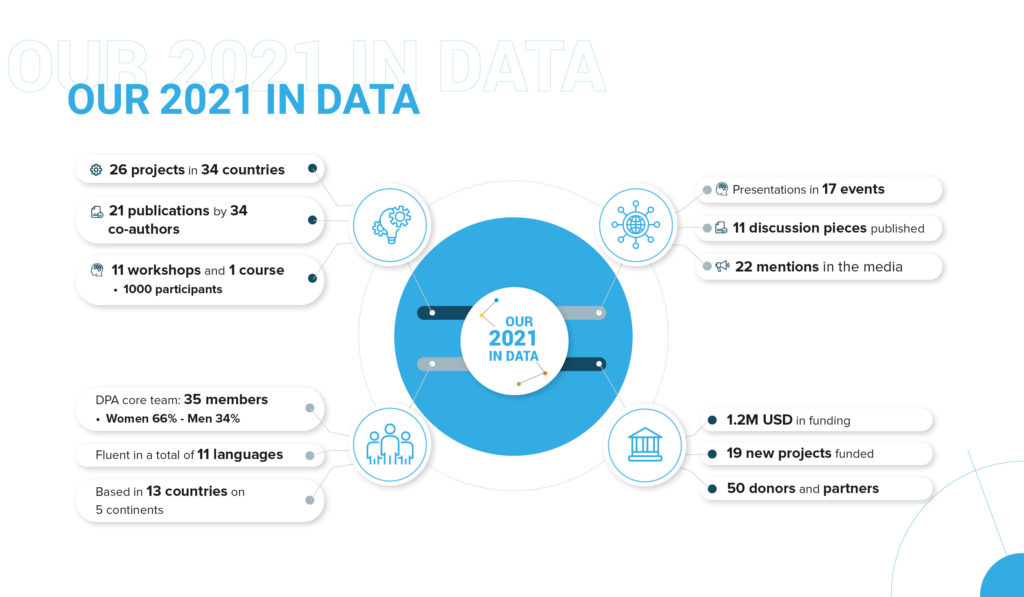
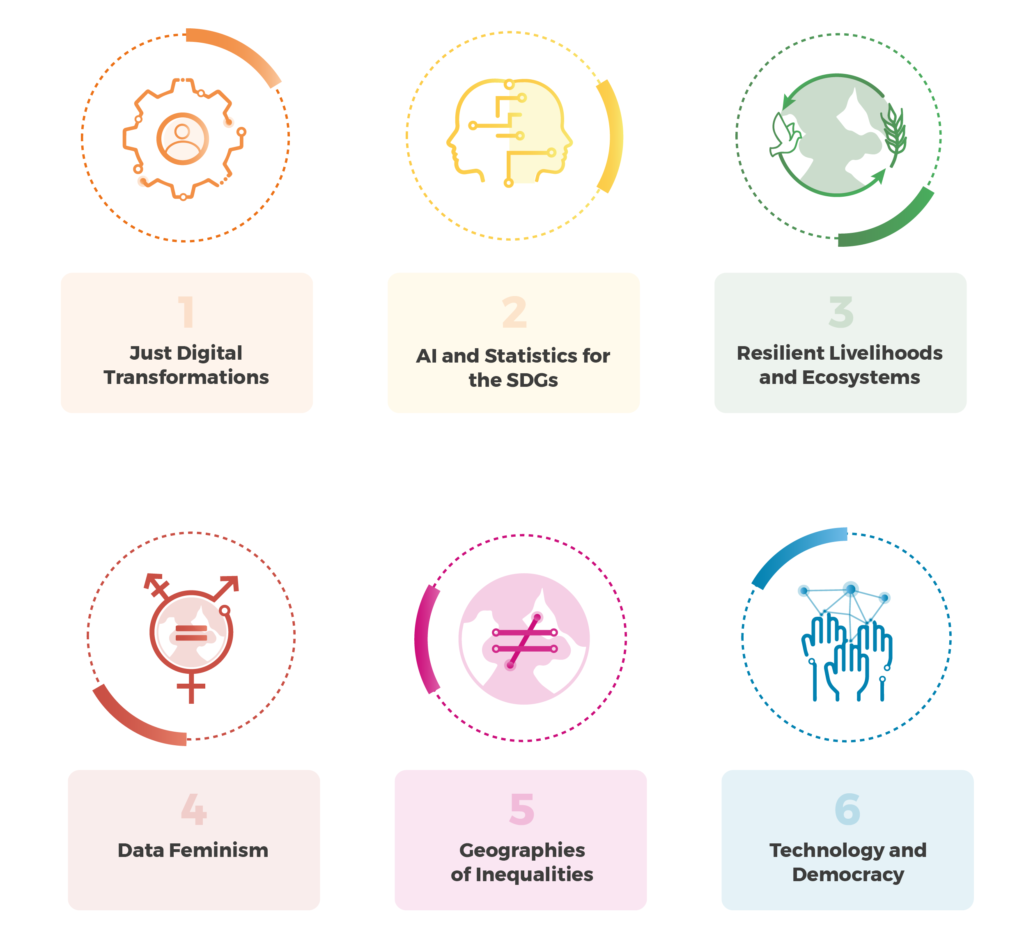
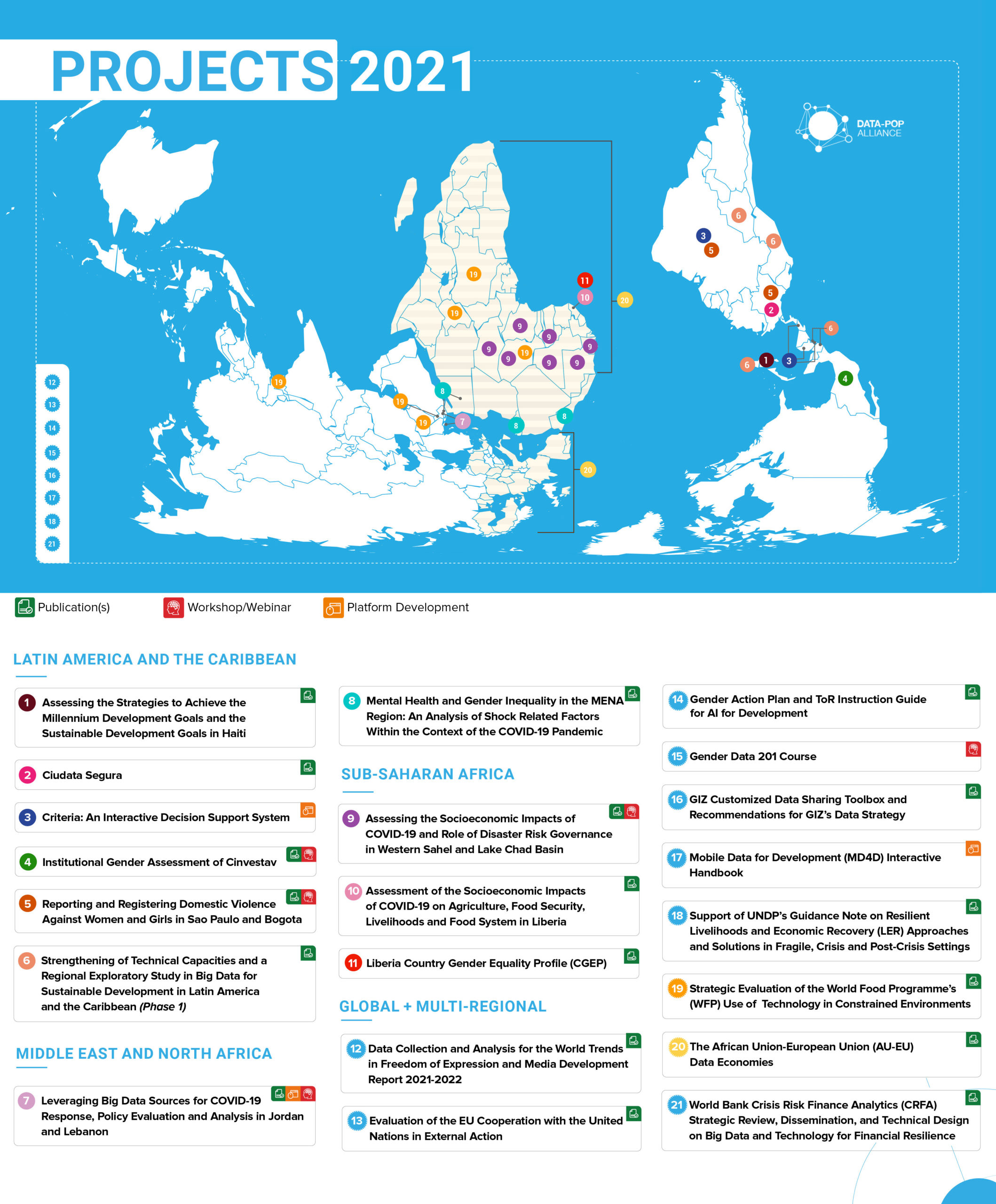
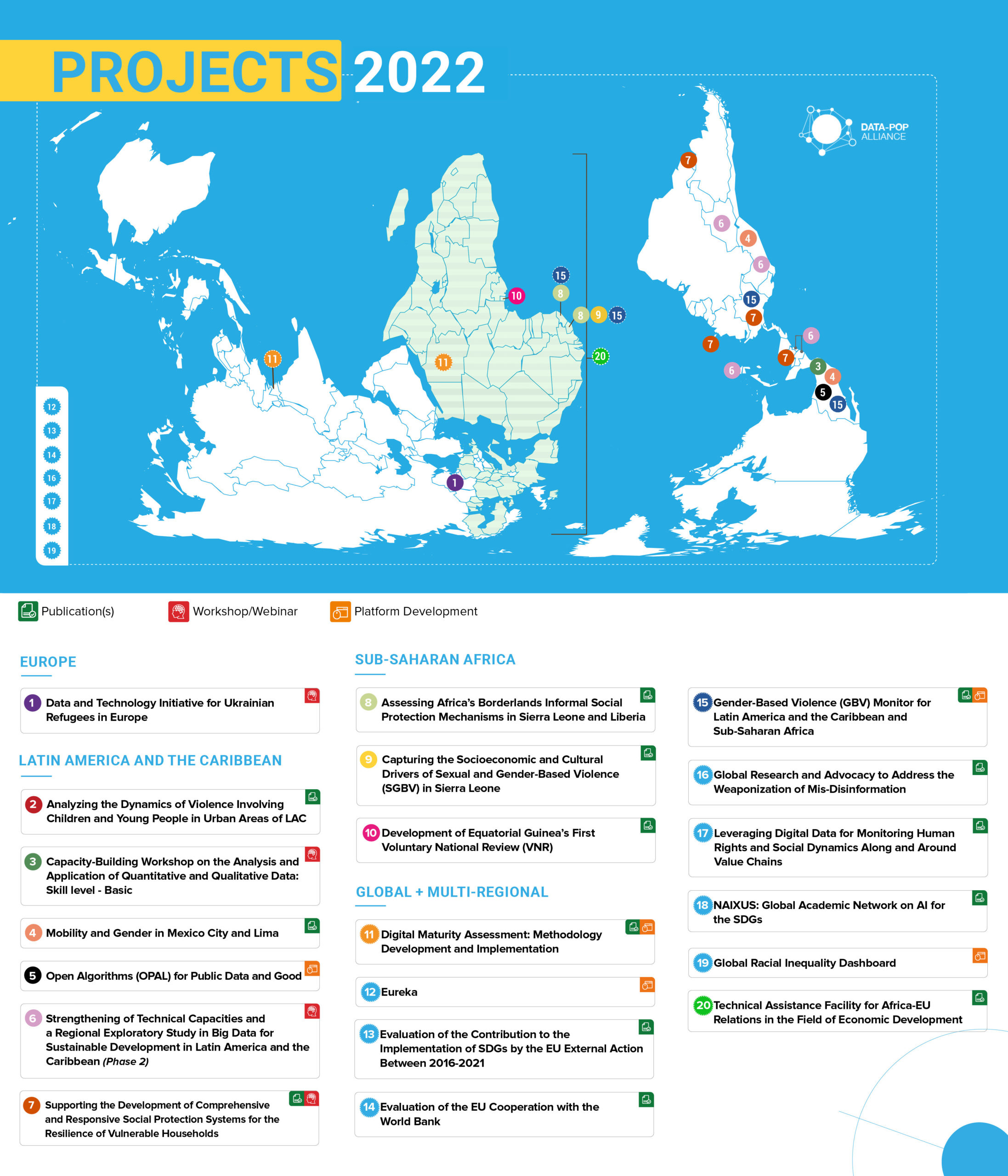

![M002 - Feature Blog Post [WEB]](https://datapopalliance.org/wp-content/uploads/2025/10/M002-Feature-Blog-Post-WEB.png)





